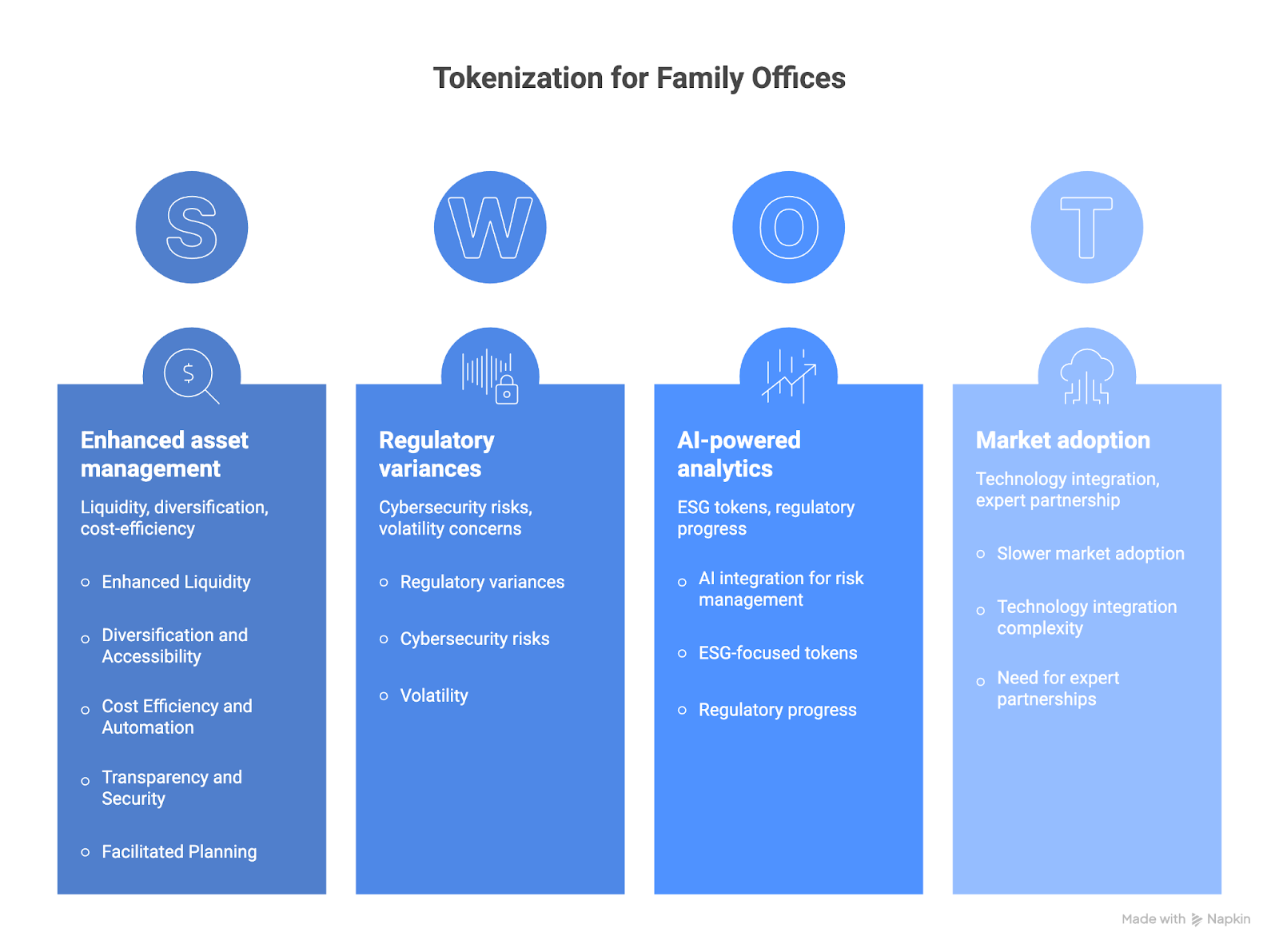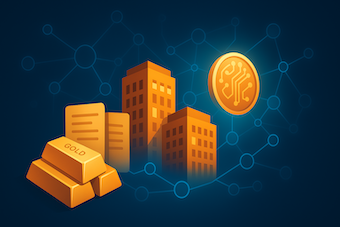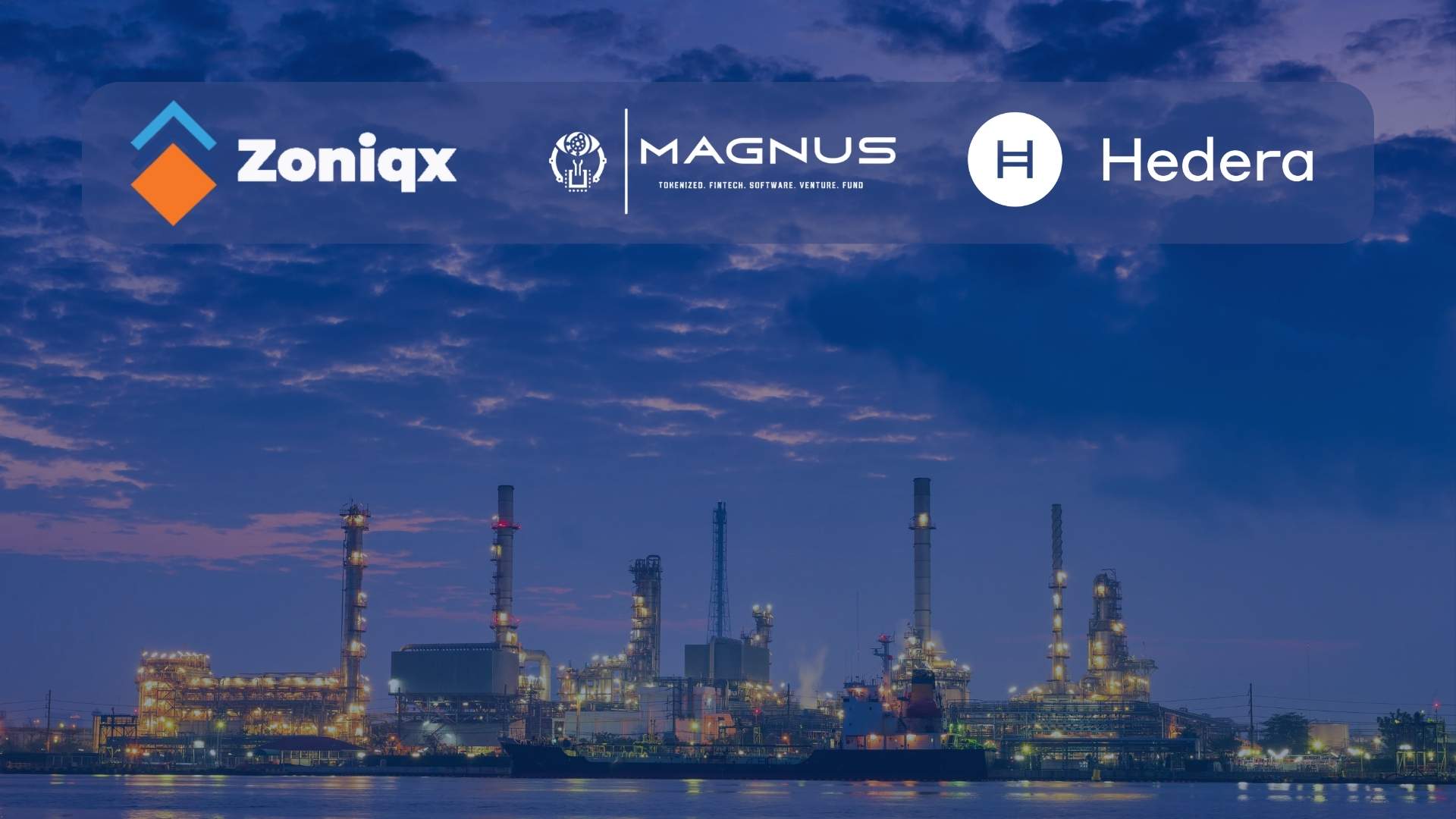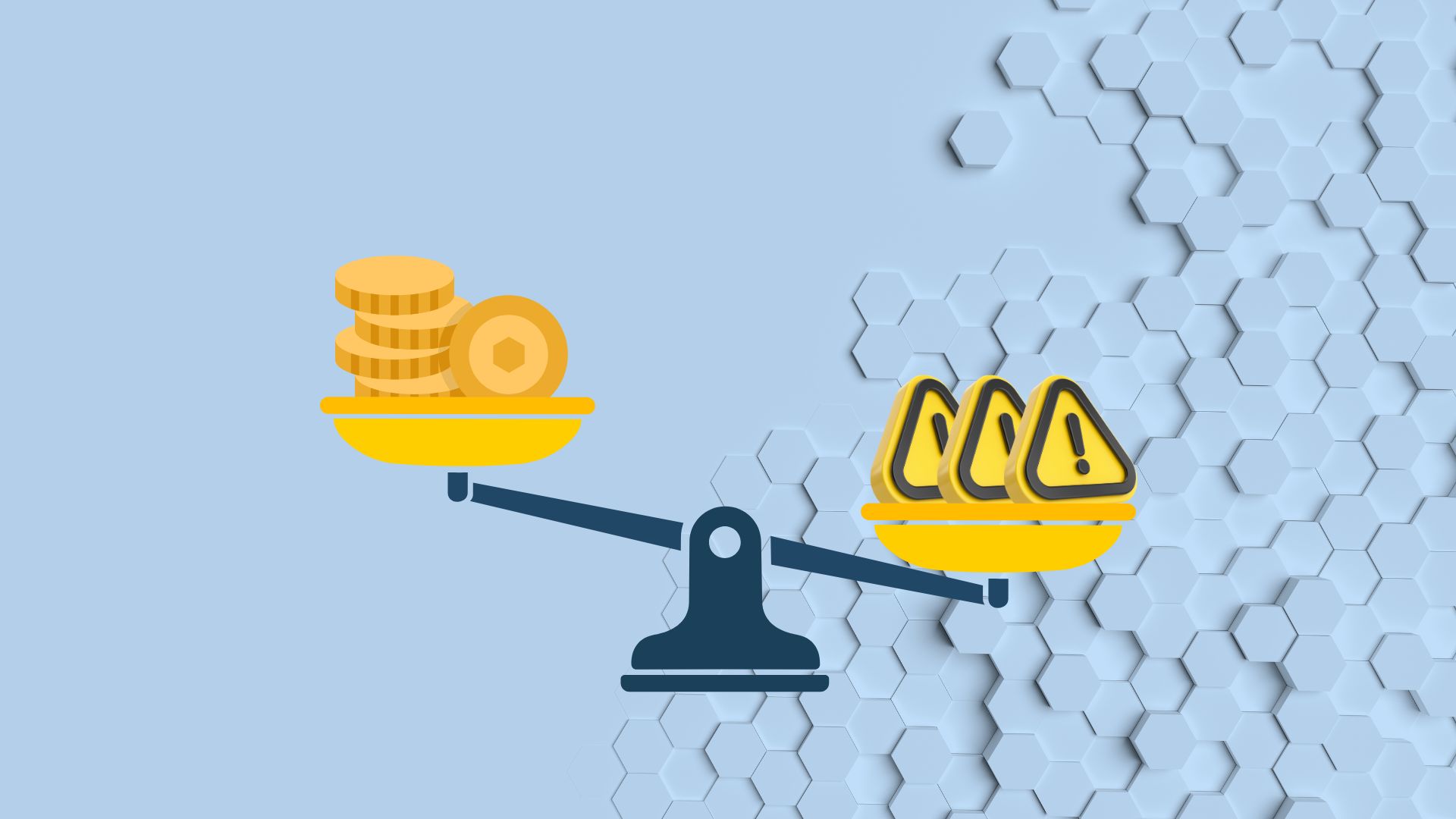Real-World Use Cases: Family Offices & Tokenization
1. Introduction to Tokenization in Family Offices
In the evolving landscape of wealth management, family offices, entities managing the financial affairs of ultra-high-net-worth families are increasingly turning to blockchain technology to address longstanding challenges. Tokenization, the process of converting real-world assets (RWAs) such as real estate, private equity, art, and commodities into digital tokens on a blockchain, offers unprecedented liquidity, transparency, and efficiency. As of 2025, with over $85 trillion in global wealth expected to transfer across generations by 2045, tokenization is poised to transform how family offices handle asset management, estate planning, and succession. This article explores these applications in depth, highlighting general use cases alongside specific examples from Zoniqx, a leading fintech platform specializing in RWA tokenization. Platforms like Zoniqx, with their Tokenized Asset Lifecycle Management (TALM) solution and DyCIST protocol, are at the forefront, enabling compliant, interoperable tokenization across diverse assets.
2. Understanding Tokenization: Basics and Technology
Tokenization involves representing ownership of physical or intangible assets as digital tokens on a blockchain, often using standards like ERC-7518 for compliance and interoperability. This technology leverages smart contracts, self-executing code, to automate processes like dividend distribution, compliance checks, and transfers. For family offices, tokenization bridges traditional finance with decentralized systems, supporting assets from real estate to bonds. Key enablers include platforms integrating with blockchains like Ethereum, Ripple's XRP Ledger, and Hedera, ensuring low-cost, high-throughput operations. In 2025, advancements such as AI-powered automation further streamline these processes, making tokenization accessible for institutional-grade use.

3. Key Benefits of Tokenization for Family Offices
Tokenization provides several core advantages tailored to family offices' needs:
- Enhanced Liquidity: Illiquid assets become tradable fractions, allowing partial sales without full divestment.
- Diversification and Accessibility: Enables investment in niche assets like carbon credits or digital art, with global reach and lower entry barriers.
- Cost Efficiency and Automation: Smart contracts reduce intermediaries, administrative costs, and settlement times from days to minutes.
- Transparency and Security: Blockchain's immutable ledger minimizes fraud, with features like AML/KYC integration ensuring compliance.
- Facilitated Planning: Simplifies wealth transfer, aligning with next-generation preferences for digital-native investments.
These benefits are particularly amplified in 2025, where regulatory frameworks in regions like the UAE and Asia-Pacific support broader adoption.
4. Use Cases in Asset Management
4.1 Real-World Examples
Asset management in family offices often involves illiquid holdings, where tokenization unlocks value. For instance, real estate tokenization via platforms like RealT has tokenized over 535 properties worth $101 million, enabling fractional ownership and 24/7 trading. In commodities, tokens like PAX Gold (PAXG) allow fractional investment in gold, with a market cap exceeding $1 billion, aiding diversification. Financial instruments, such as BlackRock's tokenized bond fund raising $375 million quickly, demonstrate liquidity for treasuries and bonds. These cases reduce operational burdens through automated rent or dividend distributions, enhancing portfolio efficiency.
4.2 Zoniqx-Specific Use Cases
Zoniqx's TALM platform excels in asset-agnostic tokenization, supporting real estate, private equity, and luxury goods. A notable example is tokenizing over $500 million in real estate across the UAE and Europe, enabling fractional shares for liquidity without full sales. Through partnerships with Ripple and Hedera, Zoniqx facilitates multi-chain operations for commodities like gold or agricultural products, automating compliance and trading. For bonds and stocks, Zoniqx's DyCIST protocol digitizes ownership, managing corporate actions via smart contracts, ideal for family offices diversifying into tokenized U.S. Treasuries.
5. Use Cases in Estate Planning
5.1 General Real-World Examples
Estate planning benefits from tokenization's ability to fractionalize assets, reducing disputes. For example, tokenized art or real estate allows heirs to inherit proportional shares without selling the asset, as seen in platforms like Masterworks for fine art. In commodities, tokenized carbon credits enable sustainable estate allocations, with immutable records ensuring transparent distribution. Legal innovations like the UAE's DIFC Digital Assets Will incorporate tokenized assets into trusts, speeding up transfers and minimizing legal fees.
5.2 Zoniqx-Specific Use Cases
Zoniqx simplifies estate planning by tokenizing assets like private equity or intellectual property, enabling faster wealth distribution via smart contracts. For instance, the platform supports digitizing real estate for fractional inheritance, reducing complexity in multi-generational plans. The ERC-7518 framework ensures compliance during transfers, with integrations like StegX for secondary markets allowing heirs to liquidate shares easily. This is particularly useful for bonds, where tokenized versions automate dividend payouts to beneficiaries.
6. Use Cases in Succession Planning
6.1 General Real-World Examples
Succession planning leverages tokenization for automated, secure transfers. Multi-signature wallets and "dead man's switches" in smart contracts ensure assets like NFTs or crypto pass to heirs upon triggers, as explored in UAE's DIFC pilots. Tokenized real estate, such as Reental's $70 million in Spanish properties, allows seamless generational handovers without disputes. For financial instruments, tokenized treasuries from Franklin Templeton enable quick, global inheritance.
6.2 Zoniqx-Specific Use Cases
Zoniqx aids succession by fractionalizing assets for equitable distribution, using TALM for end-to-end management. Examples include tokenizing private equity for next-gen transfers, with smart contracts automating releases upon death. Partnerships with Serenity enhance U.S.-GCC alliances for cross-border succession, tokenizing assets like stocks for rapid, compliant handovers. This supports the $1 trillion Middle East wealth transfer, ensuring tech-savvy heirs manage digitized portfolios efficiently.
7. Challenges and Solutions in Implementing Tokenization
Despite benefits, challenges include regulatory variances, cybersecurity risks, and volatility. Solutions involve compliant platforms like Zoniqx's DyCIST for AML/KYC, and secure custody via multi-signature setups. Family offices should partner with experts and conduct audits to mitigate these.
8. Future Trends in Tokenization for Family Offices (2025 and Beyond)
In 2025, AI integration with tokenization will enable predictive analytics for risk management, while ESG-focused tokens like carbon credits gain traction. Regulatory progress in Qatar and the EU will accelerate adoption, with family offices allocating more to digital assets (up 37% in Asia-Pacific). Zoniqx's expansions, including DeFi integrations, signal a shift toward hybrid traditional-digital models.
9. Conclusion
Tokenization is reshaping family offices by modernizing asset management, estate planning, and succession. With platforms like Zoniqx leading through innovative solutions, families can achieve greater liquidity, security, and generational continuity. As adoption grows, embracing this technology will be key to preserving and growing multi-trillion-dollar legacies.
About Zoniqx
Zoniqx, a Silicon Valley-based fintech leader, specializes in real-world asset tokenization using AI-driven multi-chain technology. Its platform ensures secure, compliant tokenization, supporting diverse asset classes and global liquidity.
To explore how Zoniqx can assist your organization in unlocking the potential of tokenized assets or to discuss potential partnerships and collaborations, please visit our contact page.
Disclaimer
This article is provided for informational and educational purposes only and does not constitute financial, investment, legal, tax, or any other form of professional advice. The content discusses tokenization of assets, including real-world examples and potential benefits for family offices, but it is not intended as a recommendation to buy, sell, hold, or engage in any transactions involving tokenized assets, cryptocurrencies, blockchain technologies, or related investments. Tokenization and digital assets involve significant risks, including volatility, regulatory changes, potential loss of principal, and cybersecurity threats. Readers should conduct their own thorough due diligence, assess their individual financial situation and risk tolerance, and consult qualified professionals—such as financial advisors, legal experts, or tax consultants—before making any decisions. The authors and publishers disclaim any liability for losses, damages, or consequences arising from reliance on this information. All data and examples are presented "as is" without warranties of accuracy, completeness, or timeliness, and past performance or hypothetical scenarios are not indicative of future results.



